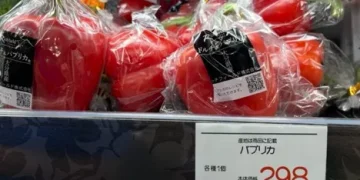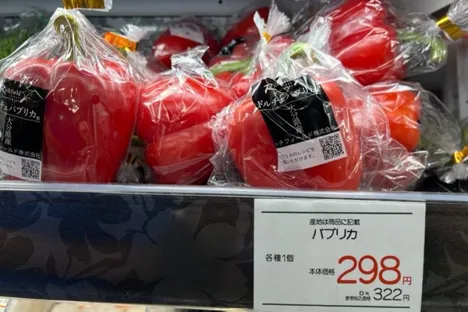Exploring the Journey of Dutch Peppers in Japan and Their Impact on Global Agriculture
Frederik Vossenaar, from the Ministry of Agriculture, Fisheries, Food Security, and Nature, recently delved into the history of Dutch peppers in Japan during a visit, shedding light on their transformative journey. Initially a novelty, the introduction of Dutch peppers to Japan in 1993 marked a significant milestone after rigorous negotiations and regulatory alignments, particularly concerning pest management.
“In 1993, the Netherlands gained approval to export peppers to Japan, a market previously unfamiliar with this fruit vegetable,” Frederik explains. Early challenges included market unfamiliarity and seasonal availability gaps, which were addressed through educational campaigns and supplementary imports from New Zealand.
However, the emergence of Dutch peppers spurred a rapid expansion of greenhouse horticulture in South Korea. “Access to the Japanese market catalyzed a horticultural revolution in Korea, with substantial governmental support driving exports and fostering partnerships with Dutch suppliers,” Frederik recounts from his tenure as agriculture council in Seoul.
Despite early successes, Dutch pepper exports to Japan have faced recent declines. “High transport costs and unfavorable exchange rates have dampened exports, alongside waning enthusiasm among growers due to stringent Japanese standards,” Frederik notes. What was once a thriving trade, worth millions of euros and thousands of tonnes annually, has dwindled significantly.
Concurrently, Japan has ramped up domestic production through initiatives like Smart Farming, leveraging technologies such as drones and 5G to revitalise agriculture. “Structural reforms and corporate interest from non-agricultural sectors are reshaping the landscape,” Frederik observes, highlighting increased local sourcing observed in Japanese supermarkets.
Looking ahead, Dutch expertise remains pivotal as Japan navigates challenges like an aging farming population and technological adoption hurdles. “The Netherlands, through entities like Dutch Greenhouse Delta, continues to support Japan’s agricultural modernisation, a focal point at Osaka Expo 2025,” Frederik concludes.































